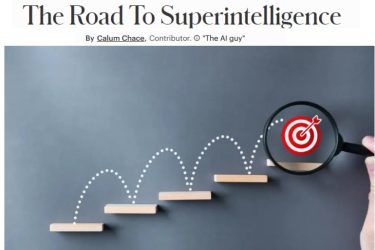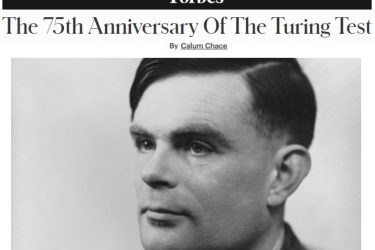Hard work
Sergey Young was born in Dalnegorsk, a small and shrinking town in Russia’s Far East. It is closer to China and Japan than to the regional capital Vladivostok, and Young describes it as not so much in the middle of nowhere as at the end of nowhere. But he was lucky enough to be born into the age of glasnost and perestroika (openness and restructuring).
It didn’t seem lucky at first. His parents were chemical engineers, and he followed in their footsteps by taking an engineering degree in Moscow. He was still only 18 when his mother phoned him to say that she and his father had both lost their jobs thanks to perestroika, and he would have to start supporting himself. Looking on the bright side, he notes that his contemporaries in other countries started their careers when they were 25, so he had a seven-year head start.
He tried his hand at cleaning skyscraper windows, but he soon found work that was more to his liking. There were no business schools in Russia at the time, and so there were no business school graduates for consultancies like McKinsey to hire. They liked his engineering degree, so they took him on. He says that each year working for McKinsey was like four years anywhere else, because every quarter they switched his geography, industry, or business function.
Like many other longevity leaders, Young attributes much of his success in life to sheer hard work. Over the years, night school helped him bring his tally of university degrees up to three, and he is currently thinking about taking a fourth. After McKinsey, he spent a decade running an investment management firm and then he co-founded a private equity company called Peak State Ventures.
Late to Longevity
Although Young has perhaps the perfect name for a longevity leader, he didn’t catch the “longevity bug” until he was 43, when he was diagnosed with high cholesterol, and was told he would probably have to take statins for the rest of his life. He thought it absurd to become dependent on pills at that age, and decided to change his lifestyle instead. When this was proved successful by a couple of annual screenings, he began to pester his family and friends to undergo annual screenings too. Several of them contacted him later to say that he had effectively saved their lives, and this felt almost like a drug.
He became an active longevity leader in 2018, when he set up the Longevity Vision Fund (LVF), a venture capital firm that invests in companies and technologies that could enable people to live longer and healthier lives. With $100m under management, LVF is one of the largest funds in the longevity space, although it is a minnow compared to more generalist venture capital firms. It is not a blue-sky investor: it aims to generate revenues with therapies that can be brought to market in the near to medium term. It diversifies its investors’ risk across a range of bets, with 18 portfolio companies at the time of writing.
Horizons
Young is more optimistic than many of his peers about how artificial intelligence (AI) is fuelling progress in longevity science. His new book “The Science and Technology of Growing Young” describes the exciting progress which may lie ahead of us: between now and 2035, AI will give us predictive medicine and greatly improved monitoring, and enable many more people to be healthy, active centenarians. Between 2035 and 2050 or so (what Young calls the Near Horizon) we will use even more advanced AI and precision medicine, including gene therapies and new kinds of drugs, to extend healthy lifespans to 150. And sometime after 2050 (the Far Horizon) we will start to modify our bodies, replacing and enhancing our vital organs, and using brain-computer interfaces to become part-carbon, part-silicon. This will stretch our lifespans to 200 years and beyond.
Some of Young’s peers in the longevity community shy away from the more exuberant forecasts in his Near and Far horizons. They worry that they may sound like scary science fiction to many people. Young thinks he is less prone to this kind of conservatism because he is relatively new to the field, and also because he sees so many promising ideas in the companies which approach him for funding. He argues that we already know the 3,000 or so genes which are responsible for aging, so within a couple of decades we should achieve some remarkable breakthroughs. In fact, he thinks that ethical considerations will become the main limiting factor to increases in longevity, and although he thinks regulators are prone to over-reacting, he does take these ethical concerns very seriously.
Age Reversal XPRIZE
Given Young’s relative optimism, it is fitting that he is co-leading the development and launch of the Age Reversal XPRIZE global competition designed to cure aging. The XPRIZE Foundation was inspired by the $25,000 Orteig Prize offered in 1919 by a French hotelier for the first person to fly from New York to Paris. (It was won in 1927 by Charles Lindbergh.) The Foundation was set up in 1996, and to date it has run 15 XPRIZES, with another six currently open. Each prize is designed to attract multiples of the award money to tackle a major global challenge, and they have scored some remarkable successes.
The Foundation was set up by Peter Diamandis, an American entrepreneur and author with a remarkably upbeat world-view. Young heard Diamandis explaining the XPRIZE concept at an event run by the motivational speaker Tony Robbins, and approached him about the idea of launching an XPRIZE for age reversal. Uncharacteristically, Diamandis replied that it would be somewhere between hard and impossible, and it took Young a few conversations to change his mind. XPRIZE team has recruited a stellar cast of subject experts, and during the pandemic he has been working on the design phase for the prize, which he hopes will launch in 2022.
There are limits to Young’s optimism. He dislikes the idea of immortality, and regards death as a natural part of our lifecycle. But he wants to keep his options open: if death becomes optional for humans in the future, he envisages people reviewing their lives every three to seven years, and deciding whether they want to extend their lives by a further period. He is a bit sceptical of transhumanism, the belief that humans should be free to use technology to augment themselves without pre-set limits. It seems somewhat selfish to him, and he argues that it is dangerous to make light of the ethical issues involved in radical life extension.
Five longevity hacks
In case you want to live long enough to witness Young’s Near and Far horizons for yourself, he offers a set of five longevity hacks. (As he himself says, they comprise advice that is as old as the hills.) 1. Get a comprehensive annual medical check-up. 2. Quit any bad habits such as smoking and drinking excessive alcohol. 3. Sleep and exercise more, and eat less. 4. Eat healthily, which means a mostly plant-based diet, with no processed foods, and only free-range meat and fish. 5. Last but not least, meditate regularly and be kind and grateful.
Young says his mission in life is to extend the healthy lifespans of a billion people. When asked why only a billion, he replies that despite all his optimism and excitement, he is still at heart a McKinsey guy: always proceeding step by step.



